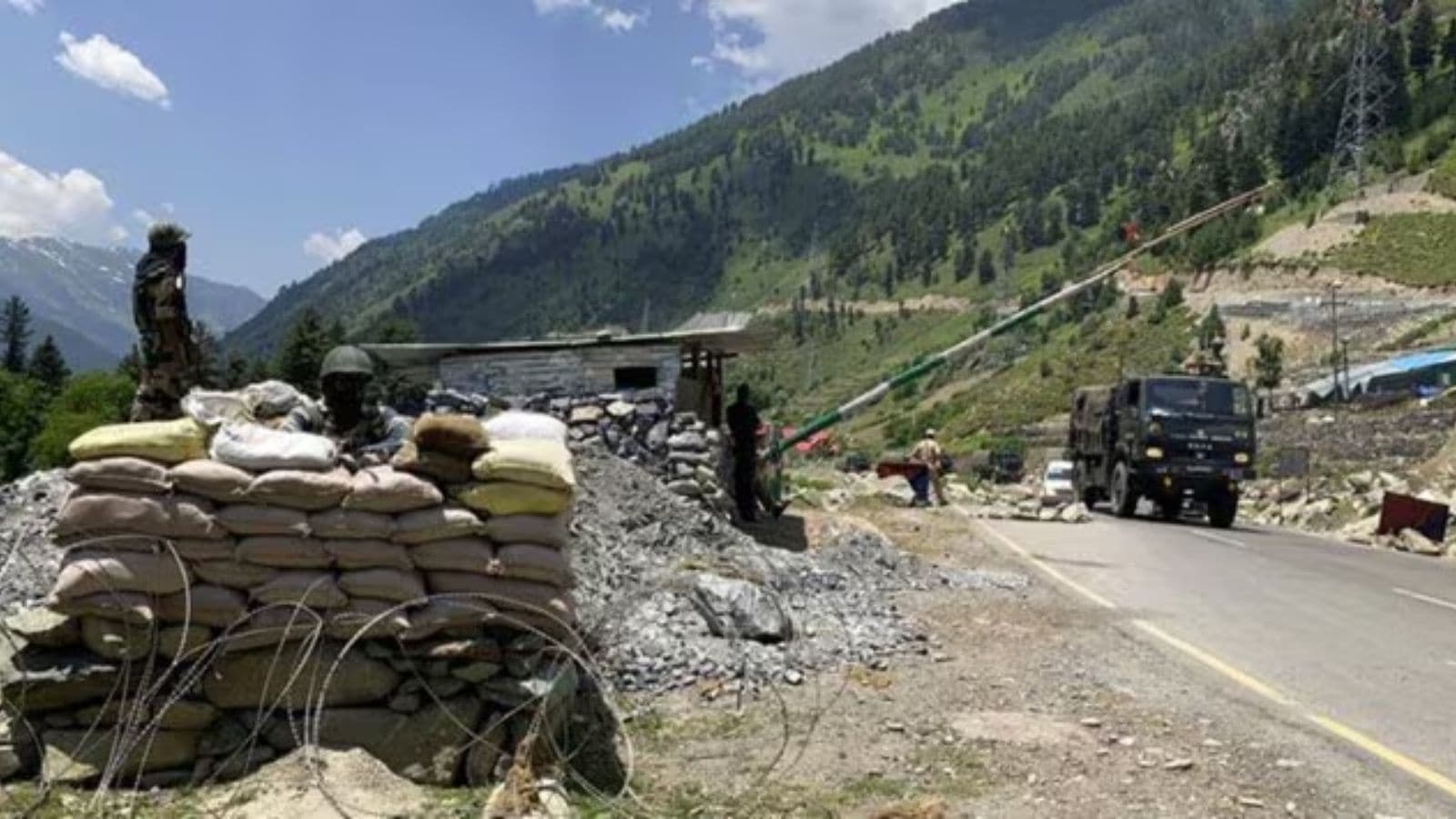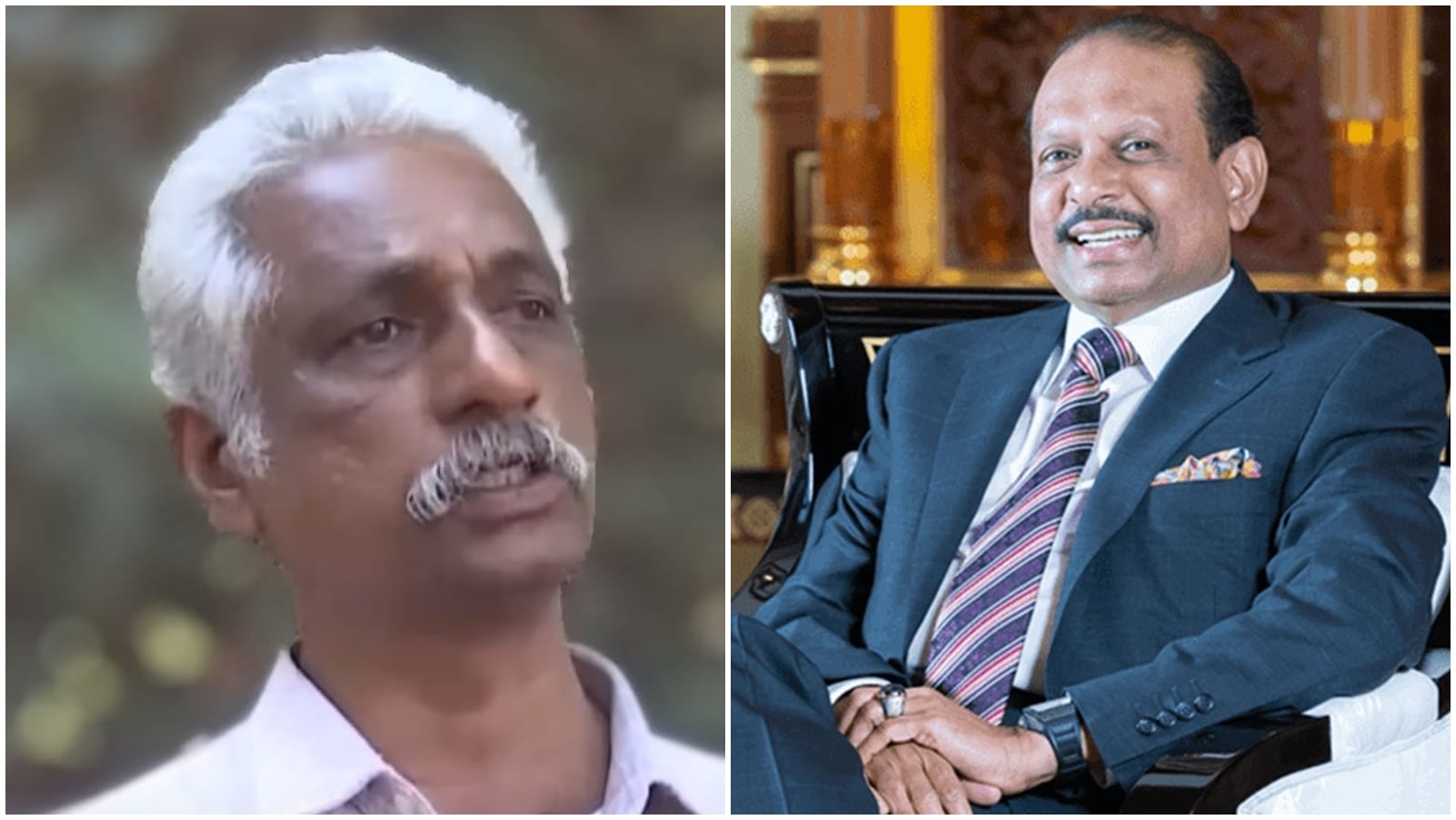One humid morning in August in the fishing harbour at Colachel in Kanniyakumari district, Rajkumar Kashyap, 47, is bending over crates of freshly caught fish. He earns around ₹1,000 per day. His job involves separating the different types of fishes, loading ice bars in the boat, and other manual tasks as required by his employer.
Rajkumar moved to the southernmost tip of the nation five years ago, travelling nearly 2,500 km, from Unnao district in Uttar Pradesh in search of livelihood. Today, he shares a room with three others from Unnao, all of them employed at the same harbour. He says the lack of jobs and comparatively low wages at home have deprived people like them of the choice of staying and working at home.
Rajkumar and his friends, unfortunately, don’t have a unique story. In the last decade or so, Tamil Nadu has been among the sought-after destinations for migrant workers from northern and eastern States of India. They arrive — alone, or with families — willing to work across various sectors, including construction, manufacturing, textile and garment, leather and chemical engineering, quarries, mining, hospitality, and fishing harbours.
Playing a vital role
In response to a question from Rajya Sabha Member Sasmit Patra about the migration of labour in the country, the Ministry of Labour responded that Tamil Nadu had 34,87,974 inter-State migrants according to the 2011 Census (migrant workers). As it turns out, this is merely the tip of the iceberg, given the lack of updated figures. It has been widely acknowledged that the actual number of inter-State migrants, especially working in unorganised sectors in Tamil Nadu, has increased significantly. They are distributed in nearly all districts, playing a vital role in building cities, driving industries, and keeping services running.
Many such migrant workers still live in cramped houses, unaware of, and unable to utilise, government schemes and support, their language preventing them from accessing services. Their children often drop out of school. Access to healthcare is uncertain.
To bridge this gap, the Tamil Nadu government is planning to undertake an inter-State migrant labour survey to understand in-migration and its changing pattern and implications for the State’s economy. The Commissionerate of Labour has floated a tender for the survey recently. The proposed survey will seek to understand the mode of recruitment, analyse the working and living conditions of these workers, and understand their health and welfare choices so as to recommend measures to improve their living conditions.
Rakesh Kumar, a native of Bihar working in a powerloom at Ammapet, says he rarely steps out of his room, other than for work. “Mostly, we do not go outside of our workplace. If we have to, we try to persuade someone who knows Tamil to come along,” he says. He claims that they are always seen as “outsiders” and the police, too, look at them with suspicion.
This social isolation is common among migrants, who are forced to rely on informal networks for support in cities and towns where they remain strangers. Ashraf, 27, a migrant-worker from West Bengal who recently landed in Madurai, says he is struggling because he cannot speak Tamil. But he admits he did not really have an option — he was, in fact, thrilled when someone who had moved as a migrant worker from his village helped him secure a job. This enables him to provide for his family of six back home.
Manu, a migrant worker from Bihar, explains, “Without a network, I would not even know where to go for things like medical help.” He works long shifts in a kitchen, dealing with intense heat, which takes a toll on his health.
Being a migrant also exposes one to other vulnerabilities. For instance, 15-year-old Anjana* from Bihar is working in a small-scale bag manufacturing unit in Chennai. Staying with her brother in a rented single-room apartment, Anjana earns around ₹9,000 a month. After meeting their basic needs, the brother and the sister send to their parents whatever they can. Forced to leave school after completing Class 8 owing to financial pressures, she wants to continue her education. “But how will I begin again now,” she wonders.
Out of school
Vanessa Peter, founder, Information and Resource Centre for the Deprived Urban Communities (IRCDUC), says the challenges faced by migrant workers should be addressed through an intersectional approach, one that recognises overlapping vulnerabilities. She adds that children of migrant workers and seasonal migrants have been found to be out of school.
“The Government Order 183 (Labour and Skill Development) emphasises providing education to migrant children in the residential area and rehabilitation in a street situation in coordination with the Illam Thedi Kalvi scheme. However, access to education and continuity in mother tongue are a problem because of the gaps in identification and enrolment,” she says. She urges that the coming enumeration of inter-State workers also focus on gender- and child-related concerns of workers and their families.
Another pressing issue is wage disparity. In some parts of the State, migrant workers are paid significantly less than local labourers for the same job. For example, at Gandhi Market in Tiruchi, a local load-man earns about ₹1,000 a day, while a migrant worker is paid only ₹600 for the same work. According to S. Rengarajan, district secretary of the Centre of Indian Trade Unions (CITU), Tiruchi, “Despite being paid less than the local workers, the income they earn in Tamil Nadu is often more than what they could get back home.”
No disparity in Coimbatore
In contrast, in Coimbatore, there seems to be no pay disparity for these workers who constitute 40%-80% of the workforce in the city’s micro, small, and medium enterprises. “A welder is paid ₹1,200 a day. If he is paid only ₹900, he will move to another factory,” says M. Karthikeyan, president, Coimbatore District Small Industries Association.
For many migrants, the decision to move with or without families depends on livelihood opportunities and living conditions at the destination. Rajkumar, the harbour worker, says, “My family of four stays at Unnao, where my children are studying. If I bring them here, I will incur additional expenses for housing and schooling and, that too, in a more expensive town.” Migrating alone makes sense because a significant amount of money can be saved and sent home. He stays in a house provided by the employer and he can also easily move to another place, if necessary.

Sweating for livelihood: A worker stacking boxes in the fishing harbour at Colachel. | Photo Credit: N. RAJESH
After the pandemic, however, a number of migrant workers have brought their family over to Coimbatore, says Mr. Karthikeyan. With only 30% of workers moving from one factory to another, many coming with their families are settling down. They visit their home town once a year, he adds.
But those migrating with their families face the same set of challenges. An additional burden is to find schools for their children. The language barrier makes schooling even more difficult.
Anjal, a migrant from Agra, is residing with her family in Nagercoil. She highlights the issue of accessing free healthcare services provided by the government. “While getting my nephew vaccinated, we struggled to convey the information to the medical staff. A help centre, manned by someone who can speak Hindi, would help us.”
Long-pending demand
R. Geetha, south regional coordinator, National Coordination Committee of Construction Labour, highlights the long-standing demand from labour welfare groups: issuing identity cards to all migrant workers. Though it is commendable that Tamil Nadu is among the few States with a dedicated portal for inter-State migrants, enrolling on the portal should be made mandatory, she adds. “Identity cards are crucial so that they can access essential services such as free ration, healthcare, and education for their children, besides compensation in the event of a worker’s death,” she points out.
These workers face economic insecurity owing to informal recruitment, the lack of written contracts, and dependence on middlemen to secure jobs. The middlemen may deduct commissions from their wages or delay the wages themselves. However, it is the financial situation at home and the availability of steady job opportunities in Tamil Nadu, coupled with the reasonable wages, that drive them to migrate, says P. Singaran, vice-president, CITU-Tamil Nadu.
He adds that these workers, a significant number of them being seasonal migrants, mostly engage in manual work. Mapping these migrants will be crucial, as they move from one place to another for higher wages. “They are not provided with labour benefits such as ESI or PF, so employers are eager to hire migrant labourers. Therefore, there are plenty of jobs for them,” Mr. Singaran points out.
Comprehensive data
S. Irudaya Rajan, chair, International Institute of Migration and Development, Kerala, who led the Tamil Nadu Migration Survey in 2015, underscores the need to have comprehensive data on migrants in order to work out policies for their welfare. He highlights the importance of understanding the dynamics of migration, noting that the survey should be conducted with inputs from trained migration experts.
He calls for creation of a separate wing in the districts with a dedicated officer to provide assistance to these workers in distress.
An official of the Tamil Nadu Labour Welfare and Skill Development Department says the survey will be an intensive exercise to be done in a limited period of time. The survey, which covers both organised and unorganised workers, will be completed in four to five months. Efforts will be made to correct pay disparities. Comprehensive policies will be framed only after the survey is completed, he adds.
As factories expand, cities grow, and services demand labour, these workers have become an indispensable part of the labour machine. The real question is whether Tamil Nadu will transition from being merely a workplace for migrants to a home that addresses their vulnerabilities.
(*name changed)
(With inputs from M. Sabari in Salem, M. Soundariya Preetha in Coimbatore, Meenakshy S. in Chennai, Geetha Srimathi in Chennai, C. Palanivel Rajan in Madurai, and Ancy Donal Madonna in Tiruchi)



.png)
.png)
.png)
















 22 hours ago
3
22 hours ago
3







 English (US) ·
English (US) ·